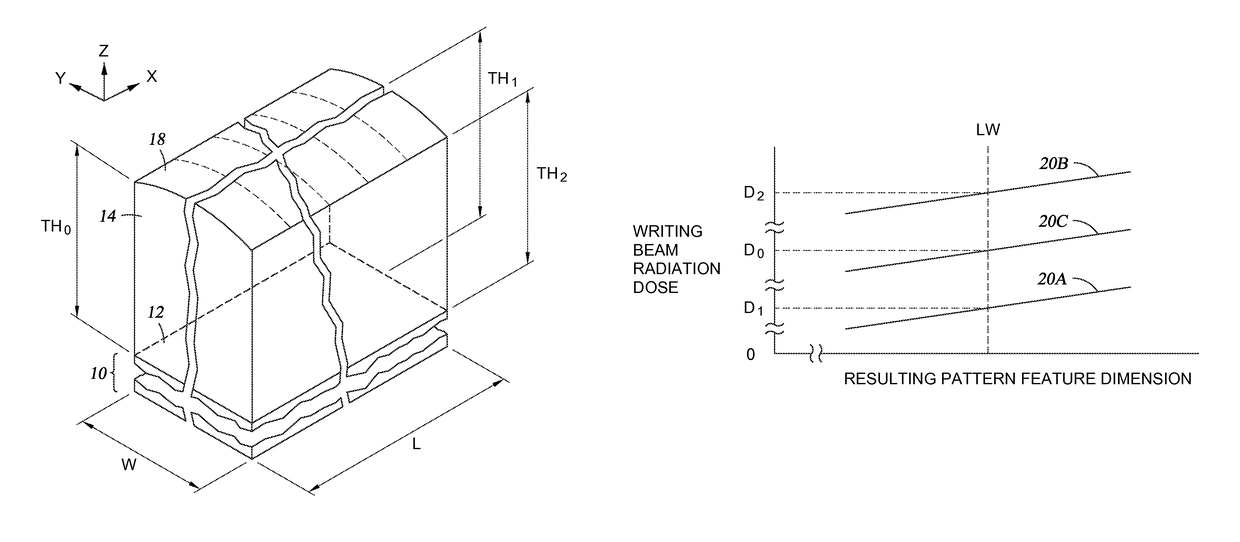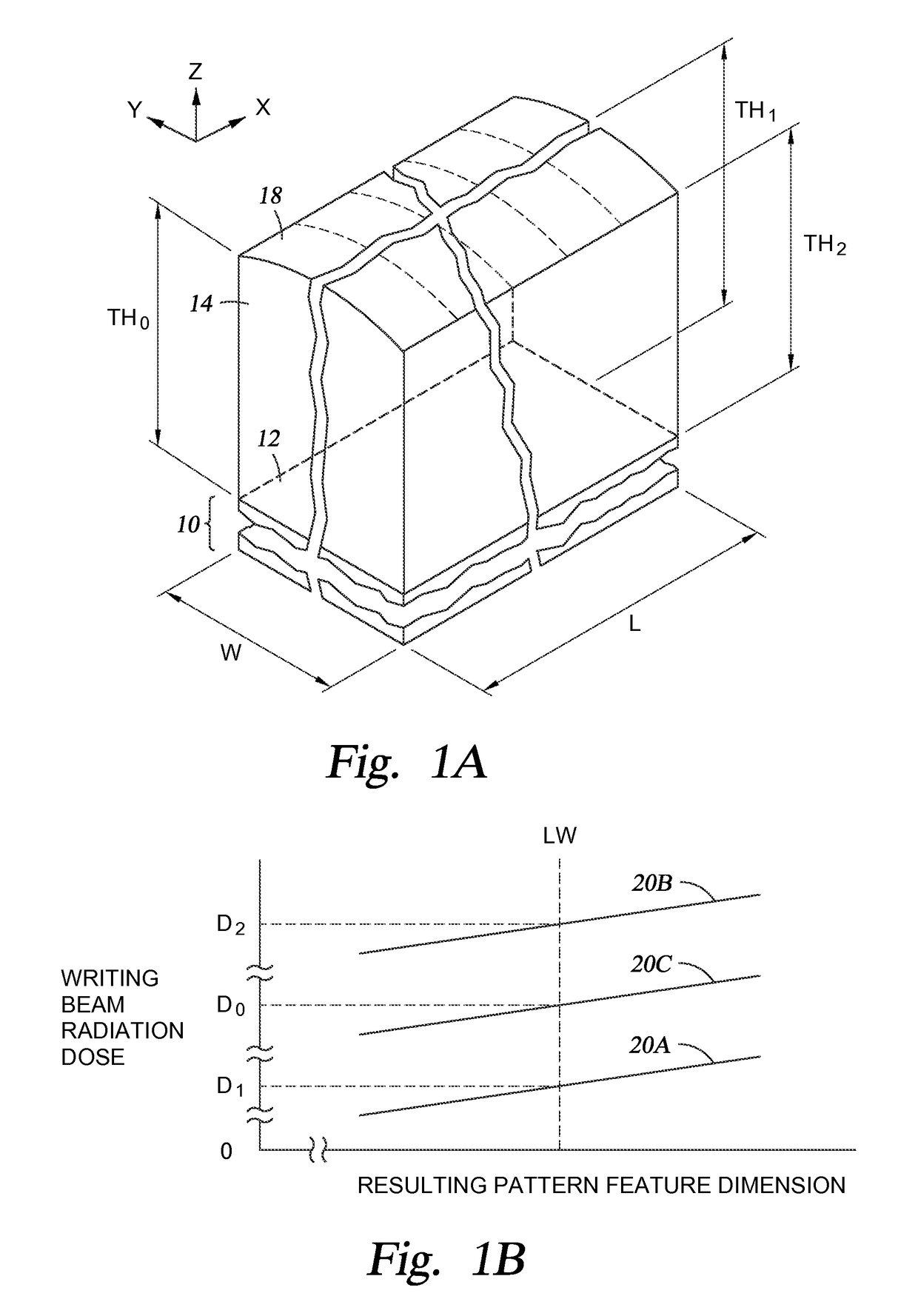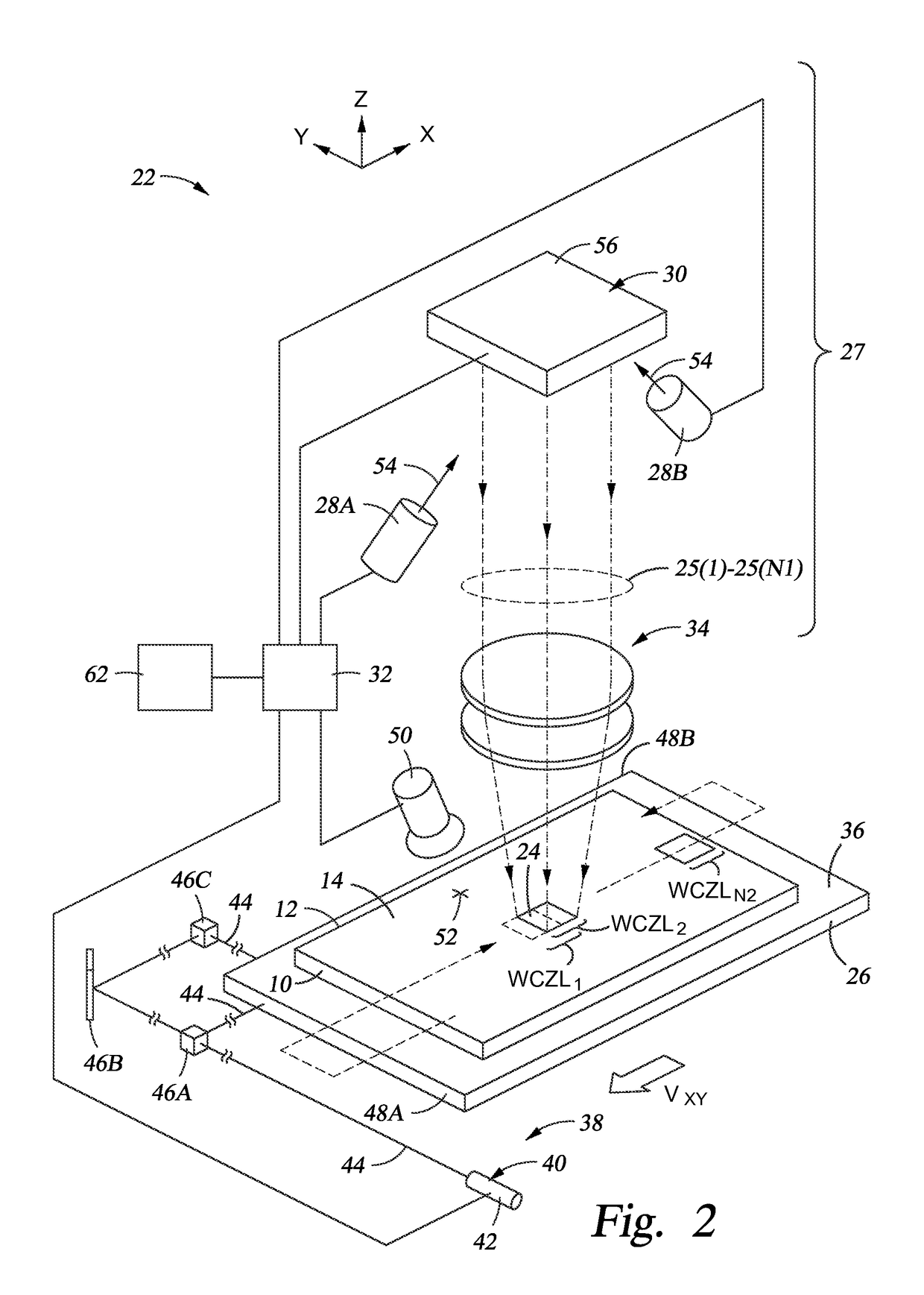Pattern generators employing processors to vary delivery dose of writing beams according to photoresist thickness, and associated methods
a pattern generator and writing beam technology, applied in the field of microlithography patterning, can solve the problems of difficult to achieve the same photoresist thickness uniformly across the substrate, difficult effective spin coating of photoresist, and non-uniform feature size, and achieve the effect of precise critical dimensional control of pattern features and predictable performance characteristics
- Summary
- Abstract
- Description
- Claims
- Application Information
AI Technical Summary
Benefits of technology
Problems solved by technology
Method used
Image
Examples
fourth embodiment
[0080]In one case of this embodiment as illustrated in FIG. 12B, during the writing cycles WC5, WC6 the computer processor 32 provides instruction so that the frequency of the pulses of the light 56 may increase to a frequency of ten (10) pulses per writing cycle from the nominal frequency of eight (8) pulses per writing cycles as instructed in writing cycles WC1 through WC4. The higher frequency compensates for the thicker resist thickness TH1 as shown in FIG. 12D. In writing cycle WCN2, the computer processor 32 instructs the frequency of the pulse of the light 56 to decrease to seven (7) pulses per writing cycle from a nominal eight (8) pulses to compensate for the thinner resist thickness TH2. In this manner, changing the frequency of the pulses of the light 56 may be used to compensate for deviations in photoresist thickness and achieve higher uniformity. It is understood that a combination of the third and fourth embodiment may also be used.
fifth embodiment
[0081]A fifth embodiment is also disclosed. In this regard, a portion 208 of the mirrors 58(1)-58(N1) may be turned off adjust a cumulated dose delivered to a pattern feature in order to compensate for deviation thickness of the photoresist. In this regard, FIGS. 13A through 13F are schematic drawings of the SLM 56 superimposed upon the substrate 10 in six (6) respective writing cycle zone locations, respectively. A photoresist section 14A attached to the substrate 10 may include a thickness which is thinner than a thickness of a photoresist section 14B attached to the substrate 10. Accordingly, a dose adjustment may be used to improve uniformity of feature sizes. As depicted in FIG. 13A, a first feature 210A and a second feature 210B of the pattern to be written may be disposed in the photoresist sections 14A, 14B, respectively. As the mirrors 58(1)-58(N1) and the substrate 10 move relative to each other cumulative pixel doses are applied to write the first feature 210A and the sec...
PUM
| Property | Measurement | Unit |
|---|---|---|
| thickness | aaaaa | aaaaa |
| width | aaaaa | aaaaa |
| width | aaaaa | aaaaa |
Abstract
Description
Claims
Application Information
 Login to View More
Login to View More - R&D
- Intellectual Property
- Life Sciences
- Materials
- Tech Scout
- Unparalleled Data Quality
- Higher Quality Content
- 60% Fewer Hallucinations
Browse by: Latest US Patents, China's latest patents, Technical Efficacy Thesaurus, Application Domain, Technology Topic, Popular Technical Reports.
© 2025 PatSnap. All rights reserved.Legal|Privacy policy|Modern Slavery Act Transparency Statement|Sitemap|About US| Contact US: help@patsnap.com



